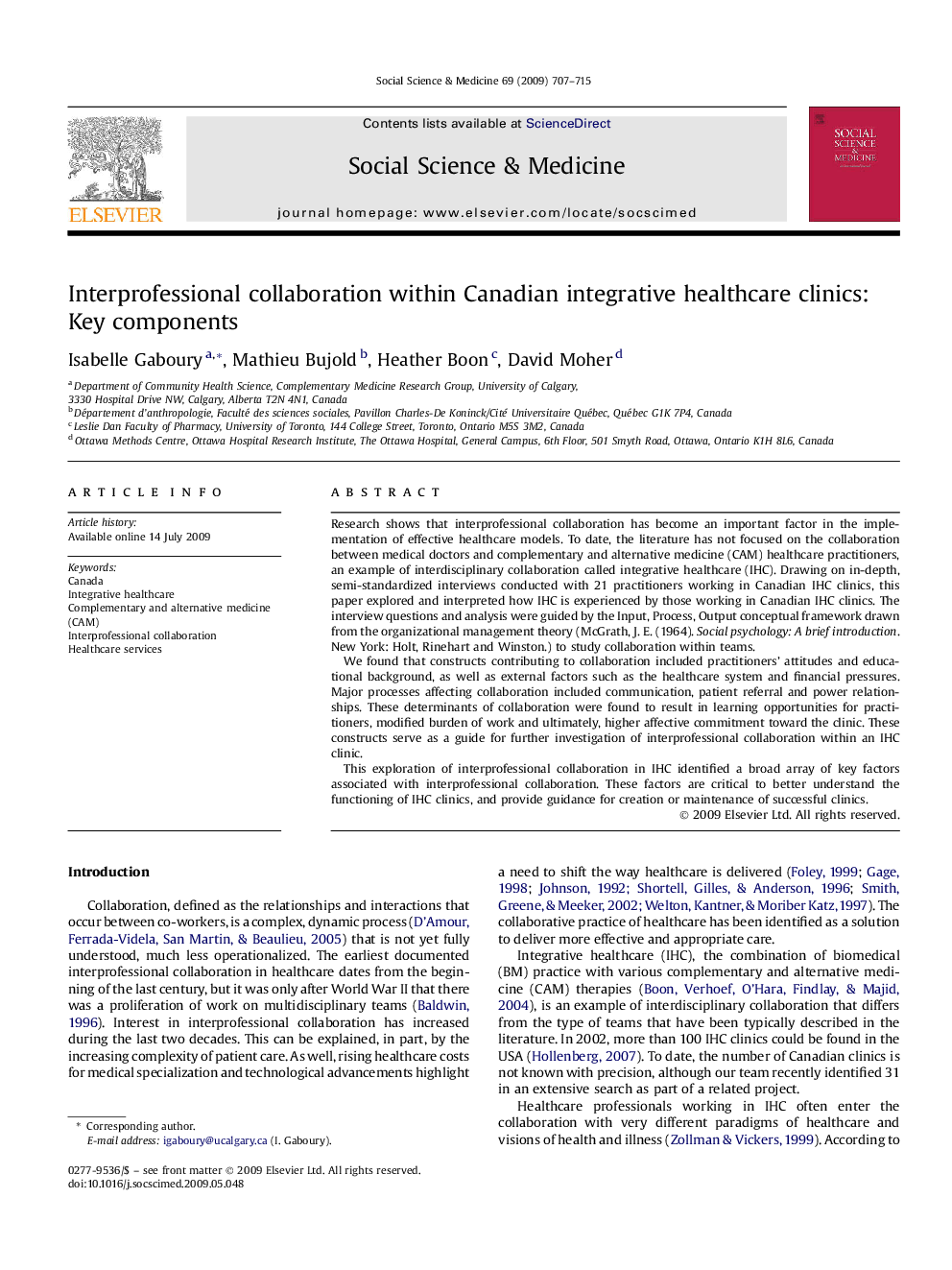| Article ID | Journal | Published Year | Pages | File Type |
|---|---|---|---|---|
| 953630 | Social Science & Medicine | 2009 | 9 Pages |
Research shows that interprofessional collaboration has become an important factor in the implementation of effective healthcare models. To date, the literature has not focused on the collaboration between medical doctors and complementary and alternative medicine (CAM) healthcare practitioners, an example of interdisciplinary collaboration called integrative healthcare (IHC). Drawing on in-depth, semi-standardized interviews conducted with 21 practitioners working in Canadian IHC clinics, this paper explored and interpreted how IHC is experienced by those working in Canadian IHC clinics. The interview questions and analysis were guided by the Input, Process, Output conceptual framework drawn from the organizational management theory (McGrath, J. E. (1964). Social psychology: A brief introduction. New York: Holt, Rinehart and Winston.) to study collaboration within teams.We found that constructs contributing to collaboration included practitioners' attitudes and educational background, as well as external factors such as the healthcare system and financial pressures. Major processes affecting collaboration included communication, patient referral and power relationships. These determinants of collaboration were found to result in learning opportunities for practitioners, modified burden of work and ultimately, higher affective commitment toward the clinic. These constructs serve as a guide for further investigation of interprofessional collaboration within an IHC clinic.This exploration of interprofessional collaboration in IHC identified a broad array of key factors associated with interprofessional collaboration. These factors are critical to better understand the functioning of IHC clinics, and provide guidance for creation or maintenance of successful clinics.
